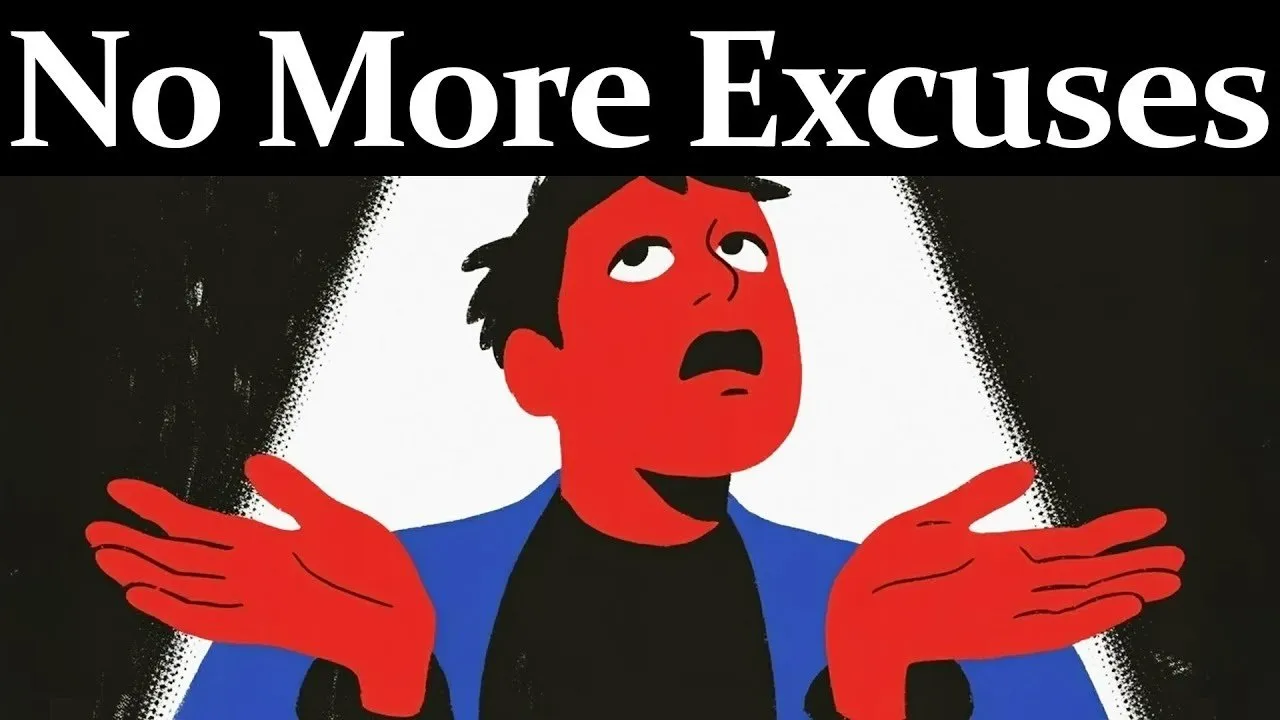Table of Contents
Most people think survival is about having the right gear or knowing which berries to eat. Jordan Jonas, winner of "Alone" season six, will tell you it's really about something much deeper - the ability to adapt, persevere, and find meaning even when everything goes sideways.
Key Takeaways
- Jonas survived 77 days in the Canadian Arctic, becoming the first contestant to successfully kill a moose with bow and arrow on the show
- His unconventional path included years hobo-ing on freight trains and living with nomadic reindeer herders in Siberia
- True survival success comes from mental resilience and the ability to adapt when your original plan fails completely
- Small mistakes in extreme conditions can cascade into life-threatening situations - like leaving food unprotected from wolverines
- Faith and purpose provide crucial psychological anchors during extended isolation and hardship
- Modern survival skills are best learned through progressive challenges rather than jumping into extreme situations
- The most dangerous enemy in survival isn't nature - it's the voice in your head telling you to quit when there's an easy way out
- Understanding your relationship with discomfort and failure determines your ability to thrive in challenging conditions
- Real wilderness wisdom comes from embracing the fact that you'll screw up regularly and learning to bounce back quickly
Timeline: Jordan Jonas's Journey to Survival Mastery
Early Years (1980s-1990s): Growing up on an Idaho farm, Jonas developed practical skills but wasn't initially interested in hunting or wilderness survival.
Age 18 (Late 1990s): Joined his brother Ben freight train hopping across America, spending nearly a year riding rails and living on the streets - his first taste of true self-reliance.
Early 2000s: Spiritual crisis led him to Russia to help build an orphanage, marking the beginning of his Siberian adventures.
2000s-2010s: Spent years living with Evenki natives in Siberia, learning fur trapping, reindeer herding, and traditional survival techniques in some of Earth's harshest conditions.
2019: Competed on and won "Alone" season six after 77 days in the Canadian Arctic, becoming legendary for his moose kill and positive attitude.
Present Day: Continues guiding wilderness expeditions and sharing survival wisdom, having transformed from a farm kid into one of the world's most respected survivalists.
The Art of Thriving When Everything Goes Wrong
Here's something most survival shows won't tell you - the real battle isn't against nature. It's against that voice in your head that starts whispering "why are you doing this?" when things get tough. Jonas learned this lesson the hard way during his 77 days in the Canadian Arctic, and it's what separated him from every other contestant who tapped out.
The show "Alone" strips away all the Hollywood nonsense. Ten people, ten items each, dropped in the wilderness with cameras to document their own potential demise. No crew, no safety net except a satellite phone to call for extraction. Winner takes all, but only if you can outlast everyone else's breaking point.
- Jonas went in with a strategy that immediately fell apart - he'd planned to catch fish, rot them, and use the pile to attract bears for hunting
- The location had been burned by wildfire, eliminating berries, which meant no bears, no grouse, and limited food sources
- Instead of panicking, he adapted by focusing on what was available: rabbits and the moose tracks he spotted everywhere
- His first major success came on day one when he caught a rabbit, followed by steady success with snare lines throughout the forest
- The psychological challenge proved harder than physical hardship - not knowing when the competition would end meant constant uncertainty about food rationing
- By day 20, his persistence paid off when his elaborate fence-and-funnel system successfully guided a massive moose into bow range
What's fascinating is how Jonas describes that moment of taking down the moose. Most people imagine it as this triumphant, adrenaline-pumping scene. The reality was more complex - a mixture of gratitude, responsibility, and the sobering realization that this one animal would determine whether he'd survive the winter months ahead.
The shot itself came after weeks of preparation and one devastating miss on an earlier moose. Jonas had built an intricate alarm system using cans and string, alerting him when animals approached his funnel system. When the moment came, his heart was pounding, but muscle memory from countless hours of practice took over. The arrow found its mark, though not perfectly - it hit one lung instead of both, meaning a longer, more anxious wait while the animal slowly succumbed.
Lessons From Life on the Rails: The Hobo Years
Before Jonas became a wilderness legend, he was just a restless 18-year-old following his older brother Ben onto freight trains. This wasn't some romantic adventure - it was a crash course in self-reliance that would shape everything that came after.
- Train hopping taught him to live with absolute uncertainty, never knowing where the next meal or safe place to sleep would come from
- The freight train community included fascinating characters like Rocco, a sober Italian guy who constantly got into fights over his rigid sense of ethics
- Devo, another memorable character, survived on the streets despite massive drug and alcohol consumption, demonstrating an almost supernatural resilience
- The experience showed Jonas that poor people and outcasts were often the most generous, regularly offering rides and help to strangers
- Boredom became a major challenge - spending days waiting for trains that never came, then having to entertain yourself with whatever you could find
- Getting arrested for trespassing was just part of the lifestyle, treated more as an occupational hazard than a serious crime
One story perfectly captures the absurdity and magic of that time. After getting out of jail in some small Indiana town, Jonas and his brother spent four days waiting at an abandoned factory for a train slow enough to catch. Bored out of their minds, they found a huge roll of aluminum foil and fashioned elaborate hats with horns and loops. When a minivan pulled up near the tracks one night, they decided to entertain themselves by circling the vehicle while wearing their metallic creations. The poor driver was probably terrified, but for two young guys with nothing but time, it was just another way to inject some humor into an uncertain existence.
The freight train experience taught Jonas something crucial that would serve him throughout his survival career: when you have absolutely nothing to fall back on, you become remarkably resourceful. There's no safety net, no backup plan, just your ability to adapt to whatever situation unfolds. This mindset proved invaluable years later when he'd find himself alone in the Siberian wilderness or competing on national television.
Siberian Apprenticeship: Learning From the Masters
Most survival "experts" learn their skills from books or weekend courses. Jonas got his education from Evenki natives who had been living off the land for thousands of years. The difference shows in everything from his tool selection to his mental approach to hardship.
- His introduction to Siberia came through a spiritual calling to help build an orphanage, leading to connections with Russian families who needed help with farming and childcare
- These families introduced him to Yura, a native fur trapper who became his mentor in traditional wilderness living
- Fur trapping involved months-long expeditions between remote cabins, checking trap lines that could stretch for kilometers through frozen wilderness
- The work was brutally physical, requiring the construction of 30-kilometer fences using nothing but axes and interlocking logs
- Navigation relied on natural landmarks and intuition rather than modern equipment - Jonas once found a cabin within 100 yards using only sun position and terrain features
- The harshest lesson came when severe dehydration during a solo cabin-to-cabin journey nearly killed him, teaching him to respect the thin margin for error in extreme conditions
The calorie deficit during fence-building season was probably the closest Jonas ever came to understanding true starvation. Working alongside native men who were naturally more efficient with tools, his larger frame required more calories while performing less productive work. He dropped to 155 pounds on his 6'3" frame, surviving on whatever random supplies they'd managed to cache before the season began.
Mistakes in that environment carried serious consequences. During one solo journey between cabins, Jonas misjudged his progress and found himself severely dehydrated with no way to safely drink water. His matches had gotten wet, meaning no fire to melt snow or boil questionable water sources. The experience of trudging through waist-deep snow while battling dehydration and hypothermia taught him the Russian phrase that would become his survival mantra: "Eyes are afraid, hands do" - essentially, "don't think about how overwhelming the task is, just take the next step."
The Psychology of Not Quitting
When Jonas talks about what separates successful survivors from everyone else, he doesn't mention gear lists or bushcraft techniques. He talks about the mental game - specifically, your relationship with failure and discomfort.
- The biggest psychological challenge on "Alone" wasn't physical hardship but not knowing when the competition would end, making food rationing and strategic decisions nearly impossible
- Jonas deliberately avoided counting days or setting expectations about timeline, knowing that constant disappointment would erode his mental resilience
- His family history of surviving genocide and extreme hardship provided a psychological framework for enduring temporary suffering
- Faith served as an anchor during extended isolation, giving him something larger than personal comfort to focus on
- The most dangerous moments came when he had options - the voice telling him to quit gets loudest when there's an easy exit available
- Past experience with extended solo trips in Siberia had taught him that the hardest part of isolation is confronting unresolved issues and personal failures
What's interesting is how Jonas describes the mental shift that happens after about a week in extreme conditions. Initially, there's frustration and self-pity - why does my site suck, why didn't I bring different gear, why am I even doing this? But once you accept that complaining won't change anything, a strange calm settles in. You start operating on a different frequency, where problems become puzzles to solve rather than reasons to give up.
The wolverine incident perfectly illustrates this mindset. After successfully killing a moose and feeling like he'd secured his victory, Jonas woke up to find that a wolverine had stolen a crucial jug of rendered fat. His immediate reaction wasn't despair but strategic thinking - okay, now I'm behind again versus whoever else got big game, what do I need to do to get back ahead? The disappointment was real, but it didn't paralyze his decision-making.
Jonas believes this mental resilience can be developed through progressively challenging yourself. You don't start with a month alone in the Arctic. You start with uncomfortable day hikes, then overnight trips, then multi-day expeditions. Each experience teaches you that discomfort is temporary and that you're more capable than you initially believed.
Ancient Skills for Modern Times
The tools and techniques Jonas uses aren't museum pieces - they're time-tested solutions that work better than modern alternatives in many situations. His approach to wilderness living combines traditional knowledge with practical adaptations for contemporary challenges.
- The single-bevel ax design used by Evenki natives proves superior to modern axes for the small-diameter trees found in northern forests
- Building effective traps requires understanding animal behavior rather than just memorizing construction techniques - Jonas set over 200 snares based on reading wildlife sign
- Food preservation becomes critical for long-term survival, leading Jonas to construct an elevated cache system to protect meat from forest scavengers
- Starting fires in wet conditions depends on finding dead standing trees that remain dry inside even during heavy rain
- Shelter design should prioritize function over appearance, with Jonas choosing a simple A-frame that could be gradually improved rather than attempting a complex log cabin
- Bow hunting requires getting within 30 yards of prey, demanding stealth and patience skills that rifles can't teach
The ax Jonas carries tells the story of this traditional knowledge perfectly. Forged by hand using Soviet-era steel, it incorporates design features developed over centuries by people whose lives depended on their tools. The single-bevel edge bites deeper into wood with each swing, the handle attachment system prevents the head from flying off during use, and the slightly concave poll helps hold wood fibers together when driving stakes.
These aren't just interesting historical curiosities - they represent accumulated wisdom from people who couldn't afford to get survival wrong. When Jonas talks about "fat wood" - pine wood saturated with resinous sap that burns even when wet - he's sharing knowledge that could mean the difference between hypothermia and a warm night's sleep.
Food procurement in northern environments requires understanding the interconnections between different food sources. Jonas learned that you can't survive on rabbit alone due to protein poisoning, but rabbits can sustain you until you successfully hunt larger game. Fish provide crucial variety and can be preserved for winter, but they're not reliable enough as a sole food source. The real prize is large mammals like moose, caribou, or elk that provide enough calories and fat to sustain a person through months of cold weather.
Faith, Family, and Finding Meaning in Suffering
Throughout all his adventures, Jonas carries something deeper than survival skills - a framework for finding meaning in hardship that connects to his family's history of surviving genocide and his personal faith journey.
- His grandparents survived the Armenian genocide, with his grandfather literally escaping from a mass execution and his grandmother enduring forced marches through the desert
- This family history of resilience provided a template for enduring temporary suffering while maintaining hope for the future
- Jonas's own faith crisis in his twenties led him to Russia, where he learned to "choose to believe" even when certainty felt impossible
- Living with native communities taught him that traditional ways of life produce both profound satisfaction and genuine hardship
- The contrast between village life and wilderness living among Siberian natives showed him how modern comfort can actually undermine human flourishing
- Extended isolation forces confrontation with unresolved personal issues, creating opportunities for psychological growth that normal life rarely provides
Jonas describes watching his father's final months as a masterclass in facing adversity with grace. After losing both legs to diabetes complications and dealing with constant pain, his dad somehow maintained his sense of humor and concern for others. This wasn't denial or forced positivity - it was a deliberate choice to find meaning in circumstances that couldn't be changed.
The spiritual dimension of survival goes beyond just having something to believe in during hard times. Jonas talks about how his faith provides an external reference point for moral decisions, preventing the kind of gradual ethical compromise that can lead ordinary people to commit terrible acts. When everything around you is chaos, having some unchanging principles helps maintain perspective and humanity.
This philosophical framework proved crucial during his darkest moments in Siberia, including a near-death experience from gasoline poisoning that left him alone in a Russian hospital room, drinking cold water and vomiting for hours while wondering if he'd see another sunrise. In that moment, having wrestled with questions of meaning and purpose beforehand provided psychological resources that pure survival skills couldn't match.
Preparing for Your Own Adventure
Whether you're planning your first overnight camping trip or dreaming of more serious wilderness adventures, Jonas's experience offers practical guidance for building real competence rather than just collecting gear.
- Start with progressively challenging day trips before attempting overnight adventures, building confidence through successful experiences
- Practice essential skills like fire-starting and basic first aid in controlled environments before depending on them in the wilderness
- Choose gear based on function rather than marketing, prioritizing versatile tools over specialized gadgets
- Develop relationships with experienced mentors who can share knowledge and provide guidance for skill development
- Accept that you'll make mistakes and potentially face dangerous situations - the goal is learning to recover and adapt rather than avoiding all risks
- Focus on understanding principles rather than memorizing techniques, allowing adaptation to different environments and circumstances
The most important preparation isn't physical - it's mental. Jonas recommends deliberately putting yourself in uncomfortable situations to build confidence in your ability to handle adversity. This might mean taking cold showers, fasting occasionally, or pushing through challenging workouts when you'd rather quit. The goal isn't to suffer for its own sake, but to prove to yourself that discomfort is temporary and manageable.
Equipment selection should reflect the reality that you can't carry solutions to every possible problem. Jonas's list of ten items for "Alone" focused on versatile tools that could serve multiple functions. An ax can process firewood, build shelter, break through ice, and help with food preparation. A good knife handles everything from food prep to gear maintenance. Quality gear costs more initially but proves its worth when your life depends on it working correctly.
The real secret to wilderness competence is time spent outdoors in various conditions. No amount of YouTube videos or survival courses can replace the experience of dealing with unexpected weather, equipment failures, or simple fatigue when you're miles from help. Start close to home, gradually extend your range, and always tell someone your plans before heading out alone.
Most importantly, remember that survival isn't really about conquering nature - it's about finding your place within natural systems and learning to work with rather than against the environment. Jonas's success comes from understanding that he's part of the ecosystem, not separate from it, and that humility and adaptation serve better than aggression and dominance.
The wilderness offers something increasingly rare in modern life: direct feedback on your decisions and immediate consequences for mistakes. There's no bureaucracy to blame, no technology to malfunction, no external factors beyond your control. Just you, your skills, and your ability to adapt when things don't go according to plan. For many people, that clarity and simplicity represents exactly what they've been missing without realizing it.





